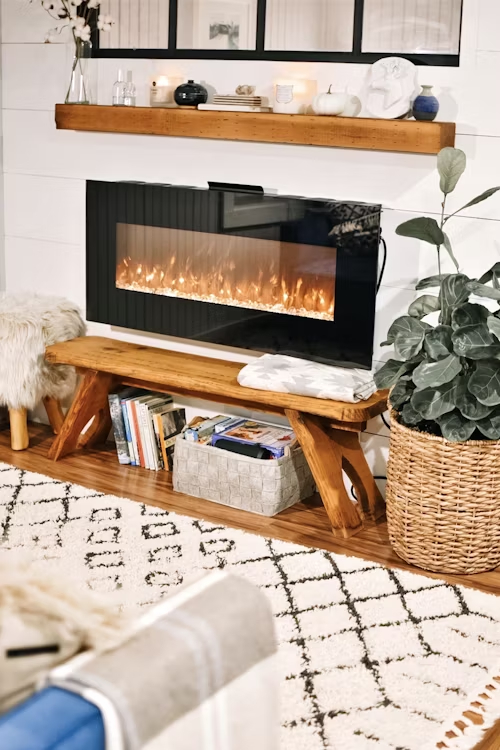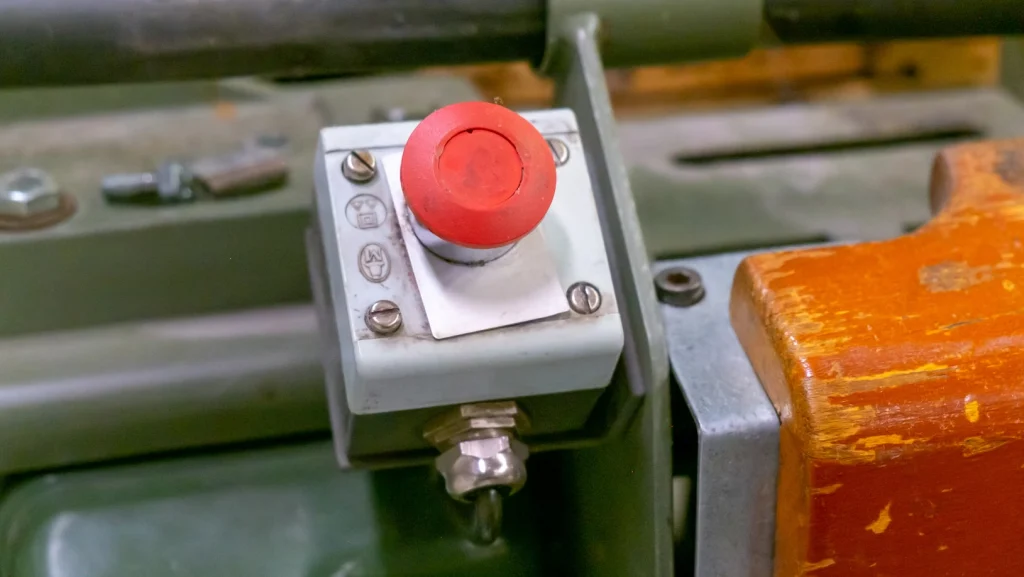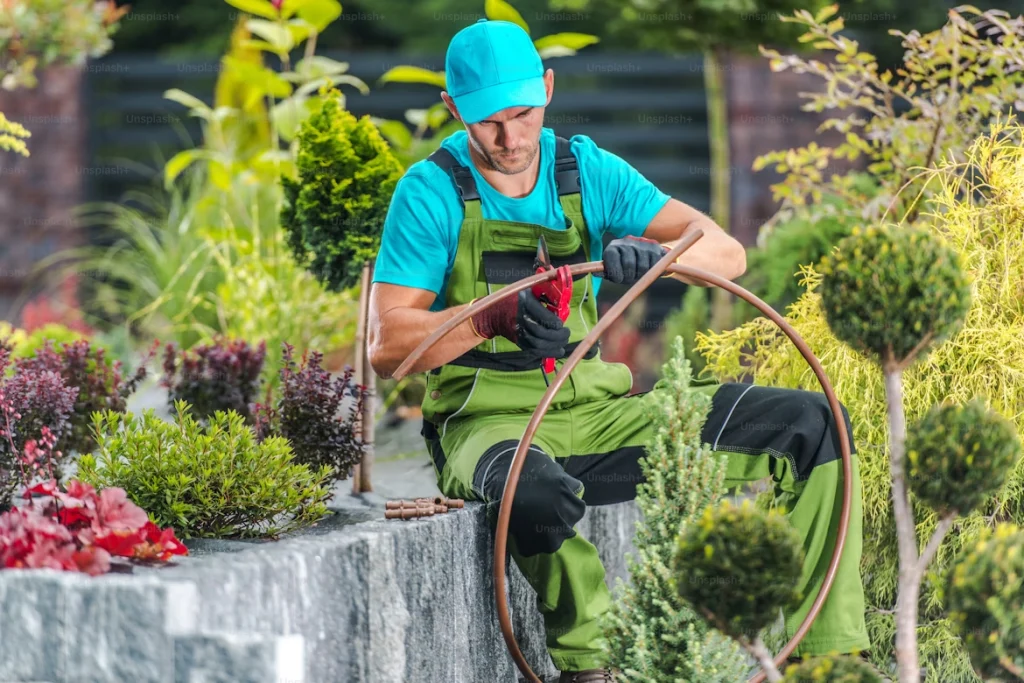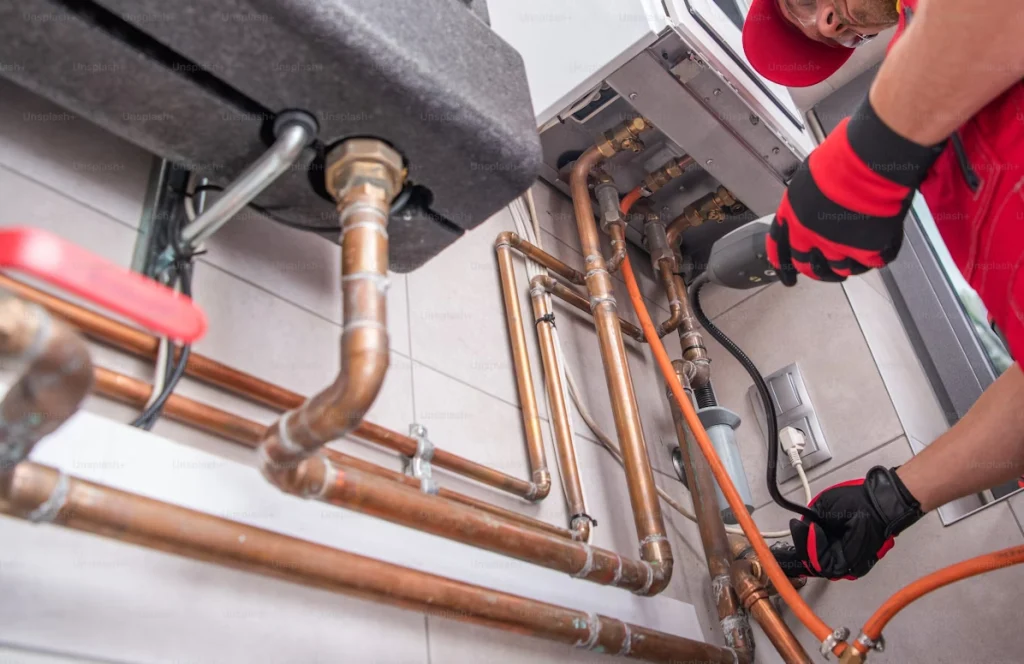

Are you renovating your home? Or do you have any unused appliances, such as a gas fireplace? Don’t leave any gas line uncapped. Or else, it’ll explode into a real disaster, metaphorically and literally.
That’s why, for any homeowner, understanding how to cap a gas line is a knowledge for survival.
A lot of people also ask, should I cap the gas line myself or trust a gas fitting professional? Let’s find out the answer to that in this article as well.

Before going into the how, let’s roll with the basics. Most people know what a fireplace is, but when it comes to a gas fireplace, some have trouble differentiating it from an electric or a wood-burning fireplace.
A gas fireplace is a heating device that relies on natural gas or propane for its source of flame. It requires less maintenance than a wood-burning fireplace, as you don’t have to chop, carry, or store any firewood for burning beforehand.
Instead of real wood, a gas fireplace uses ceramic logs for a similar effect. This device is commonly found in Australian homes, either mounted on a wall or an existing fireplace. At times, they’re installed freestanding.
It is also more flexible, since you can connect it to an existing chimney or an external ventilation system to filter out any combustion byproducts, such as carbon monoxide, carbon dioxide and small traces of nitrogen oxides.
Not only that, a gas fireplace is considered safer by standards as well, since the fire is contained within a sealed unit, which prevents open contact with flames or smoke. Plus, you can simply turn it off or on.
Time for practice. But before that, a disclaimer. Technically, you can cap your gas line yourself, but the action implies serious risks. That’s why it’s wiser to call a professional like Melbourne Gas Plumber.
And to help the experts do their job, you can prepare the following:
In case you don’t have any of the appliances above, don’t sweat. Most likely, the plumber will bring these with them.
Just to reiterate: like installing a gas line, capping it should strictly fall within the domain of the professionals. Even if the gas line is unused for a long time.
So, by no means should the guidelines below be handled by an individual. Instead, use them to follow along and understand your plumber’s work.

Locate the shut-off valve and switch it off. If you find no individual valve, find the main gas valve inside your house and turn that off instead. Afterward, disconnect the appliance from the line you want to cap.
Use a clean rag to wipe dirt or debris from the pipe’s end and remove any old pipe-tape residue. If the threads are heavily clogged, you can use a small wire brush to reach the crevices.
Caution: don’t let any debris fall into the pipe, as it can complicate the maintenance process that’ll otherwise jack up your gas bills.

Buy a black-iron gas-pipe cap that’s specifically made for gas lines. Avoid silver or galvanized ones, as they’re for water lines. More importantly, the cap should match the pipe’s thread size.
Apply pipe dope on the male threads of the pipe. The threads should be well lubricated, and any microscopic gaps should be closed to prevent gas meter leaking in the aftermath.
Don’t let any excess ooze instead. Alternatively, if you don’t have a pipe dope, you can use a yellow (not white) gas-line thread tape instead.
Hand-tighten the cap before tightening it securely with an adjustable pipe wrench or large adjustable pliers.
Once the pipe threads are tapered, their resistance will increase as they seal. Don’t stop, but keep tightening until it’s firm. As a last touch, wipe away any extra sealant that squeezes out.

Turn the gas supply back on. Mix soapy water (dish or laundry detergent) in a spray bottle. Spray it around the cap joint and see if there are bubbles, which indicate a leak. Use a mirror if needed to inspect underneath.
If the line is covered inside a wall, install nail guards over the stud area in front of the pipe. This prevents future nails or screws from puncturing the gas line.
When a gas line is capped, it’s mainly safe. That’s because the supply to that line is securely sealed. There’s no gas flow, which eliminates any risks of a leak.
That’s why the procedure for capping a gas line is only done when an appliance is permanently removed.
Have more questions about capping a gas line? Find the answers here.
No, capping a gas line yourself is not recommended. Always hire a licensed professional to avoid gas leaks, fires, or explosions. Call Melbourne Gas Plumber if you need any help.
Yes, plumbers can perfectly cap a gas line, and they need to have the proper certifications. By Australian standards, any gas line work should comply with AS/NZS 5601.1.
Typically, capping off a gas line costs around $150 to $300. The costs mainly cover the working hours for a licensed plumber, but the final amount will depend on the complexity of the work.
A gas line that’s left uncapped is extremely hazardous. Any open line can result in catastrophic leaks, which may cause a house fire or carbon monoxide poisoning.
Remember to cap a gas line when there’s a renovation that requires any appliances to be disconnected. The same applies when you’re switching to an electric system, doing a property remodelling or repiping, or when you see that the gas line is corroded or damaged.
And that wraps up how to cap a gas line. Now, you’re probably tired of hearing this, but it’s better to give a reminder: this job belongs to the professional and watching a YouTube video won’t suffice.
Call Melbourne Gas Plumber if you need any gas fitting problems solved.


Fill the form below and we’ll get back ASAP!

MGP! Thank you for help, honest pricing and high quality work. Thank you to Joe for pricing and the boys involved for replacing my hot water tank and fixing my gas leak for a reasonable price. 5 star response, 5 star service and 5 star price.
Joe was great. Very professional and quick. Gas hot water heater needed replacing, he was honest and upfront about what our options were. System was sourced and replaced within a couple of hours.
Fantastic service very responsive Joe is highly recommended and works very clean and neat..... good job well done....very happy... will use again and again

At Melbourne Gas Plumber, we're here to handle all your gas plumbing needs throughout Melbourne. With over 40 years of experience, we bring extensive local knowledge and expertise to every job.
QUICK LINKS
OPENING HOURS
Open 24/7
